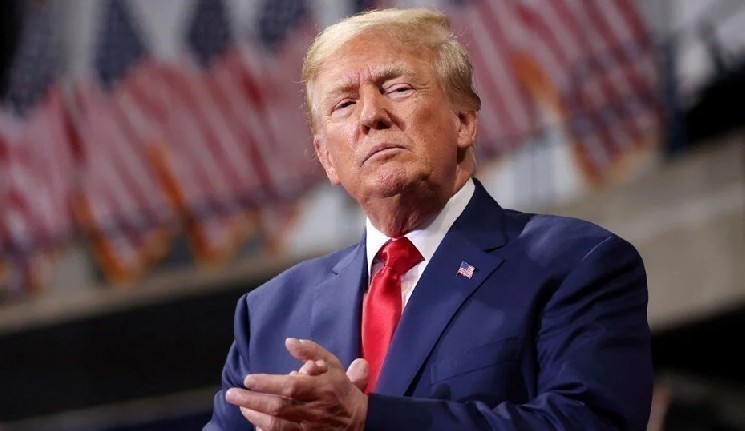Democratic Senators Call for Investigation into Trump Administration’s UAE Deals
Concerns Raised Over Ethics Violations in Billion-Dollar Transactions
In a significant development that underscores the ongoing scrutiny of political-business entanglements, two prominent Democratic senators have formally requested an investigation into potential ethics violations within the Trump administration regarding multi-billion dollar deals with the United Arab Emirates. According to reporting from the New York Times, Senators Elizabeth Warren of Massachusetts and Elissa Slotkin of Michigan have expressed serious concerns about transactions that may have crossed ethical boundaries and potentially compromised American interests.
The senators’ request, directed to the interim inspectors general of both the Commerce and State Departments, as well as the Office of Government Ethics, characterizes the situation as “deeply concerning” and worthy of thorough examination. Their letter outlines specific transactions that raise questions about the separation between governmental responsibilities and personal financial interests—a cornerstone principle of ethical governance in American democracy.
Scrutiny Centers on High-Tech Exports and Cryptocurrency Investments
At the heart of the senators’ concerns are two significant financial arrangements involving the UAE that have raised red flags about potential conflicts of interest. The first transaction involves a plan for the United Arab Emirates to import sophisticated American-made semiconductor chips specifically designed for artificial intelligence applications. Such technology transfers typically undergo rigorous security reviews given their potential dual-use nature and strategic importance to national security.
The second arrangement under scrutiny involves an even more direct financial connection. According to the senators’ allegations, a company backed by the UAE government channeled approximately $2 billion into a cryptocurrency venture founded by members of the Trump family in partnership with the family of Steve Witkoff, a former Trump administration advisor. The timing and nature of this substantial investment have prompted questions about whether government connections facilitated private business dealings.
What makes this situation particularly problematic, according to Warren and Slotkin, is Witkoff’s career trajectory. After serving at the State Department during the first six months of this year, Witkoff transitioned to a position in the White House. This movement between roles that influence foreign policy and commercial decisions while maintaining financial connections to foreign government-backed investments epitomizes the type of revolving door that ethics regulations are designed to control.
The Blurred Line Between Public Service and Private Gain
“These relationships blur the line between public duty and private interests and pose a serious risk of conflict of interest,” the Democratic senators assert in their communication to the oversight bodies. This statement cuts to the core of ethical governance concerns: when officials responsible for creating or implementing policies that affect international relations or commercial regulations have personal financial stakes in outcomes, the public interest may be compromised.
The ethics rules governing federal officials exist precisely to prevent situations where decision-makers might be influenced by potential personal gain rather than the national interest. In particular, regulations concerning dealings with foreign governments receive special attention due to constitutional provisions like the Emoluments Clause, which aims to prevent foreign influence over American officials.
The cryptocurrency investment raises particularly complex questions, as this relatively new financial sector operates with less established regulatory frameworks than traditional banking or securities. The $2 billion investment represents a significant financial commitment that could create substantial returns for those involved in the venture’s founding, potentially including family members of high-ranking officials.
Implications for International Relations and Technological Security
The UAE has emerged as a significant strategic partner for the United States in the Middle East, but also as an increasingly sophisticated player in global technology and financial markets. The country’s sovereign wealth funds and government-backed investment vehicles control hundreds of billions of dollars in assets worldwide, giving the small Gulf nation outsized influence in certain sectors.
The semiconductor chips at the center of one of the questioned deals represent a particularly sensitive area of technology transfer. As artificial intelligence capabilities become increasingly central to military applications, cybersecurity, and economic competitiveness, the export of advanced AI chips raises important national security considerations. Whether proper protocols were followed in approving such transfers—and whether decision-makers had undisclosed conflicts of interest—forms a crucial element of the senators’ concerns.
Beyond the specific transactions, these allegations highlight broader questions about the relationship between the American political establishment and wealthy Gulf states. The UAE, along with Saudi Arabia and Qatar, has developed extensive financial ties with prominent American political figures across the spectrum. These relationships have faced increasing scrutiny from government watchdogs and transparency advocates concerned about potential foreign influence on domestic policy decisions.
The Path Forward: Oversight and Accountability
The request for investigation from Senators Warren and Slotkin represents just the first step in what could become a lengthy process of review and accountability. The inspectors general offices and the Office of Government Ethics possess significant investigative authority but face complex jurisdictional and evidentiary challenges in examining transactions that may have been deliberately structured to comply with technical requirements while potentially violating the spirit of ethics regulations.
If investigations do proceed and find evidence of ethics violations, consequences could range from administrative sanctions against current officials to referrals for criminal investigation in more serious cases. However, the political sensitivity of such investigations means they often progress slowly and face significant hurdles to completion.
For the general public, this situation underscores the importance of transparency in government and the ongoing challenges of ensuring that public officials act solely in the national interest rather than for personal gain. As global financial systems become increasingly complex and interconnected, the mechanisms for ensuring ethical governance must evolve accordingly.
While the outcome of this specific request remains to be determined, it reflects the essential role of congressional oversight in maintaining the integrity of executive branch operations. As the senators await responses from the oversight bodies they’ve contacted, the American public is reminded once again of the delicate balance between international diplomacy, commercial interests, and the ethical obligations of public service.
This article does not constitute investment advice.


